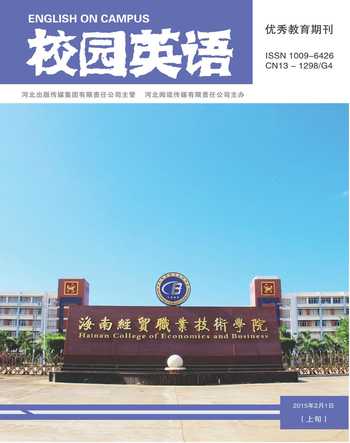An Analysis of the Sufferings in No—No—Boy
2015-05-30曹润霞
曹润霞
【Abstract:During the Second World War,the Japanese Americans suffered physically and spiritually,and there also existed the conflicts between Issei and Nisei towards the American and American society.This thesis will mainly make an analysis of the sufferings in No-No-Boy.
【Key words】suffering; conflict; internment
Surprisingly,Japanese attacked on Pearl Harbor on December 7,1941,which “plunged the United States into war and planted the notion of Japanese treachery in the minds of Americans” (The Japanese Internment 1942-1944).The U.S.government considered that the Japanese Americans were a threat to the national security,and racism was fuel to this kind of suspicion.On February 19,1942,President Franklin Roosevelt signed Executive Order 9066,and later all Japanese Americans,both resident aliens and citizens were forced into internment camps.However,during the wartime,“the need for manpower and the small number of volunteers from the camps” were factors for the American governments draft,and “…all Nisei were be reclassified and eligible for the draft” (27).“Many young men viewed the action as a reinstatement of their rights as citizens and welcomed the opportunity to serve”,but some refused to take the military service,so they were called “No-No-Boy” and imprisoned (27).Later,even if the freedom was regained,they would find that they could not adapt themselves into the American society at all.The excerpt of No-No-Boy was set on the above historical backgrounds.
For those Japanese Americans who got free finally would also suffer from prejudice and discrimination in the American society.The depression suffered by Yamada in the excerpts of No-No-Boy was caused by one of those treatments for the Japanese Americans─jobless.It was clear that after two years internment and two years prison for refusing to join the U.S.armed forces,Ichiro Yamada ran up against a stone wall almost everywhere in the society when he hoped to find a job,because he was a Japanese American.In the first workplace,the doorman was arrogant and rude,and called him “son”,while the employer in the employment office was so indifferent that he never said any words to Yamada,and just pointed to a sign on the wall for him.It was seemed that he was inanimate and just like other “signs” in the corridor and office.For Yamada,America was the place where he was born and educated,but due to his Japanese ascendants,he was treated impolitely and indifferently.
It was certain that there was a change of Yamadas response to his sufferings and past experiences.In the beginning,he refused to take his military duty imposed on him by the American government.The reasons of his refusal may be as follows:he was affected by the Issei,who although had little tie with their mother country,still regarded themselves as the citizens of Japan,and he did not have enough courage and confidence to overcome the powerful influence of the older.“He knows also that when he refuses military service he was not being true to who he really is” (The Japanese Internment 1942-1944 34).Then,what impressed him mostly after he got freedom two years later was that he had nowhere to put his hand and foot,and he was at a loss to know how to conduct himself.“Alone and feeling very much his loneness,” he hoped to find a job but having no certainty of success (John Okada 2).It seemed that Yamada had not enough self-confidence and courage,which should be ascribed to his changed attitudes towards his past determination,and his query about himself was going to happen.He was unwilling to be asked about his past experience,and tried his best to evade this kind of questions.In the first employment office,Yamada was very nervous and uneasy,and there was not a face-to-face interview which made him get some relief.But when he found some questions he could not answer,he immediately brought himself to account in his mind,which were weaved into the authors narration.And his past determination of refusing to join the U.S armed forces began to linger in his mind,the author believed that “There was no lie big enough to cover the enormity of his mistakes”(3).It was also Yamadas attitudes.For him,it seemed that his refusal to join the U.S armed force was unforgivable,and full of guilty.In the second employment office for a drafting man,owing to the employers sincere apology for his country,Yamada was very shameful of his rejection and finally revealed his secret,“Im not a veteran”(6).“The pay was good … and the work would exactly what he wanted”,but he did not accept the job at last,meanwhile he put aside his self-hatred and found hope and belonging (6).
Above all,during the Second World War,the Japanese Americans suffered physically and spiritually,and the conflicts between Issei and Nisei towards the American and American society really existed.
Reference:
[1]Benedict,Ruth.The Chrysanthemum and the Sword[M].Central Compilation &Translation Press,2008.
[2]Culjak,Toni.“The Japanese Internment 1942-1944.” Powerpoint Slideshow.American Multicultural Literature.Shannxi Normal University.May 2008.
[3]John·Okada.No-No Boy[M].Seattle:University of Washington Press,1995.
[4]談小甲.母子间不可逾越的鸿沟——从种族中心主义看《不-不仔》[J].文教资料,2009.
